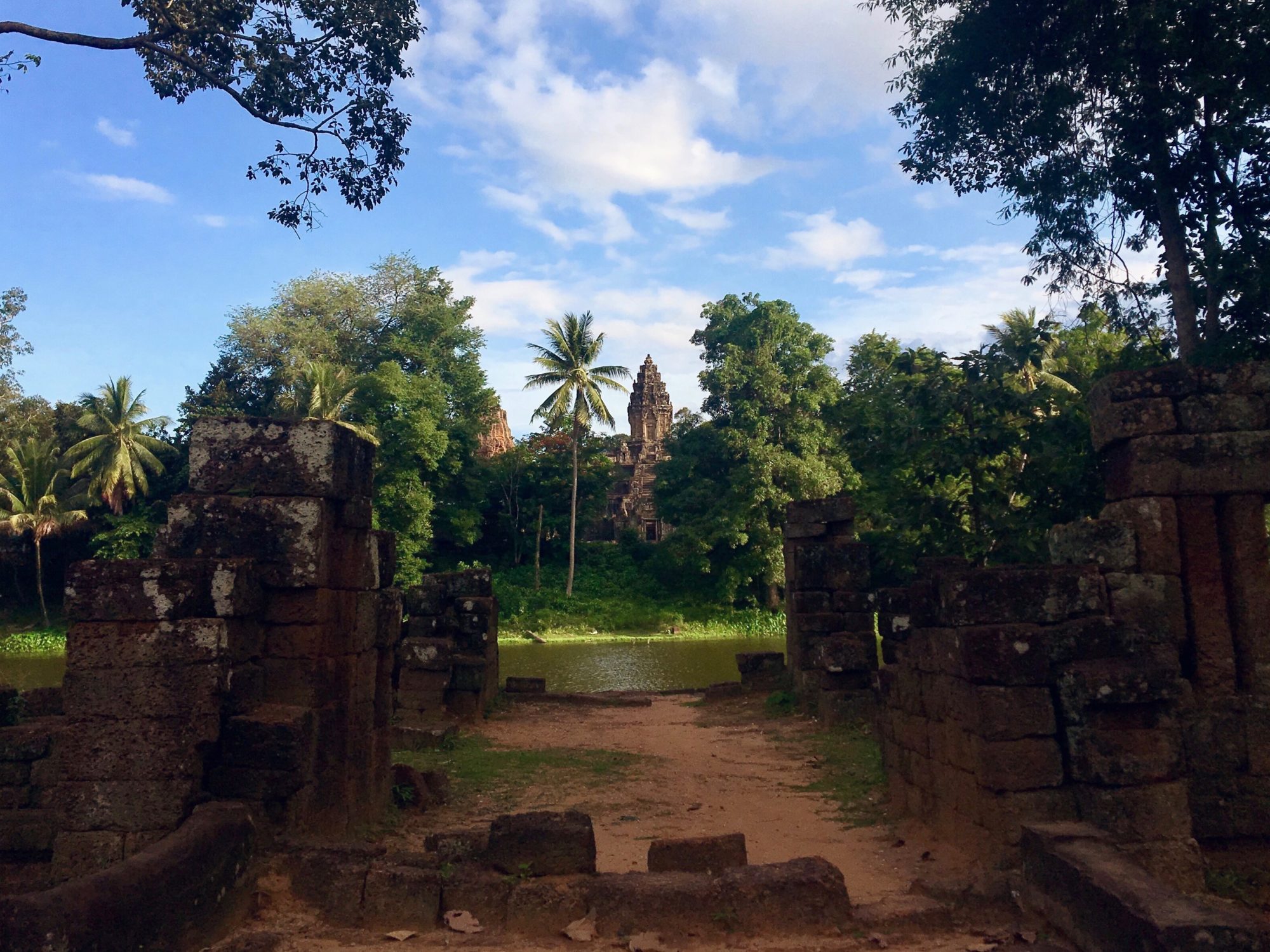Changemaker Catalyst Award Recipient Madeleine Nicholson is completing her Master of Public Health practicum research in Phnom Penh, Cambodia with World Vision International. As an international health and development student at Tulane’s School of Public Health and Tropical Medicine, Madeleine has focused her research on the country’s high rates of child malnutrition.
In early June 2017, I hopped on a plane to Phnom Penh, Cambodia to complete my Master of Public Health (MPH) practicum requirement with World Vision International. Over the course of 10 weeks, I worked under Dr. David Raminashvili in World Vision’s Health and Nutrition department. From community participation policy analysis to breast-milk substitute research to nutrition experimental trial data collection, I was able to immerse myself in many different aspects of global health and community-based programming under the guidance of an organization that knows it well.


Within my first week on the job, I traveled to Kampong Speu province to observe a community mobilization meeting of local Village Health Volunteers (VHVs). The meeting was conducted in the national language of Khmer, so my coworker Bong Sopheap translated the VHVs’ plans for community mapping and health education.

Several weeks later, I traveled north to Preah Vihear province for several days of observations and program implementations. I missed our first Area Program (AP) Office visit in Chhaeb due to illness. But after some rehydration, I jumped in to visit the Chey Saen AP and Sangkum Thmey AP offices as well as their associated village projects the rest of the week. World Vision is working to implement Positive Deviance/Hearth, or SKL (an acronym in Khmer). SKL seeks to fight Cambodia’s high rates of child malnutrition with nutrition education sessions and cooking demonstrations. The classes provide caregivers with the capacity to sustainably prepare and serve nutrient-dense meals for their children. Weighing sessions take place regularly to monitor the weight gain of participating children as well as caregivers’ adoption of healthy cooking behaviors.



At the end of July and early August, I accompanied the team for nearly two weeks in Cambodia’s second largest city, Siem Reap, made famous for the ancient temples of Angkor Wat nearby. We spent our days training local enumerators to collect endline data for the Funky Foods experimental trial. Funky Foods seeks to combat malnutrition using easily accessible supplements made from crickets and moringa plants. Caregivers were instructed to provide their children with meals cooked with these powders, which provide substantial amounts of protein, magnesium, iron, and other nutrients not present in rice, the country’s most prevalent food. We took a weekend break to explore some wildlife and temples before returning again the next week to assist in the collection of blood and stool samples. Another intern and I were responsible for cleaning the data using statistical software and reporting back to the project managers.


When the work was done, my team returned to Phnom Penh while I stayed behind an extra weekend on my own to explore the ancient temples and run the Angkor Wat Half Marathon.


While these adventures in the field are exciting, most of my days with World Vision are spent in the national office pouring over policies, reports, and data in the glow of my laptop. I have assisted my Khmer coworkers in developing and adapting IQA (Implementation Quality Assurance) tools for several project models to best serve our Cambodian context. I conducted literature review of LQAS (Lot Quality Assurance Sampling) for the monitoring of a new health program and even created a user-friendly manual for program managers to implement the sampling protocol. I researched and analyzed Cambodia’s current breast-milk substitute policies as well as various misleading marketing violations being committed by formula companies, which hinder breastfeeding and nutrition efforts. (You can find my report on this research published on World Vision’s site here). I have done a lot of other jargon-filled public health activities in my time here, but mostly, I learned – about health, about history, about culture and connection – from some of the kindest coworkers in the field.

I feel so grateful for the Phyllis M. Taylor Center not just for the Changemaker Catalyst Award, but in many ways for this incredible learning opportunity. It was through Taylor’s “Taylor Your Life” course with Ms. Julia Lang that I learned the skills necessary to confidently network and connect with established professionals in my field. Using these skills, I was able to reach out to a distant connection working for World Vision here in Phnom Penh. She then connected me with Dr. David, the Health & Nutrition Technical Lead and my supervisor.
After nearly three months, I am still not ready to go home. With the approval from World Vision and my Tulane advisor, I have decided to extend my stay and internship past my practicum’s end date to continue gaining global health experience and professional skills. If you need to find me, I’ll be here – studying health, learning culture, hiking temples, and eating too much rice in beautiful Cambodia.



